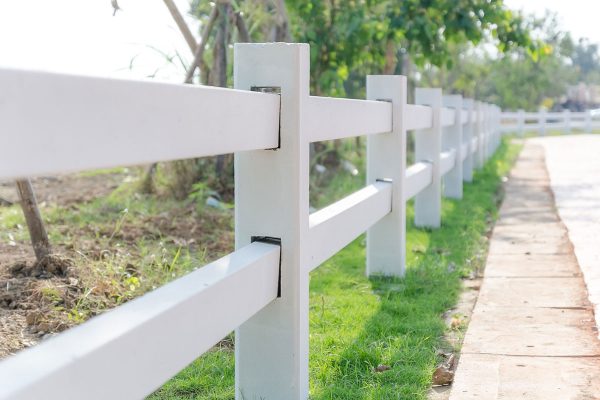Considering bamboo fencing, but not sure if it’s treated like pressure-treated wood? You’ve come to the right place! We’ve asked the professional fencing contractors and here’s what they have to say.
Bamboo fencing must be treated to protect it from damage and increase its lifespan. Bamboo is not naturally resistant to pests, mold, and weather.
This post will discuss if bamboo is any good for fencing, how you would know if it’s been treated, and what the ways are to treat it. So read on to learn more!
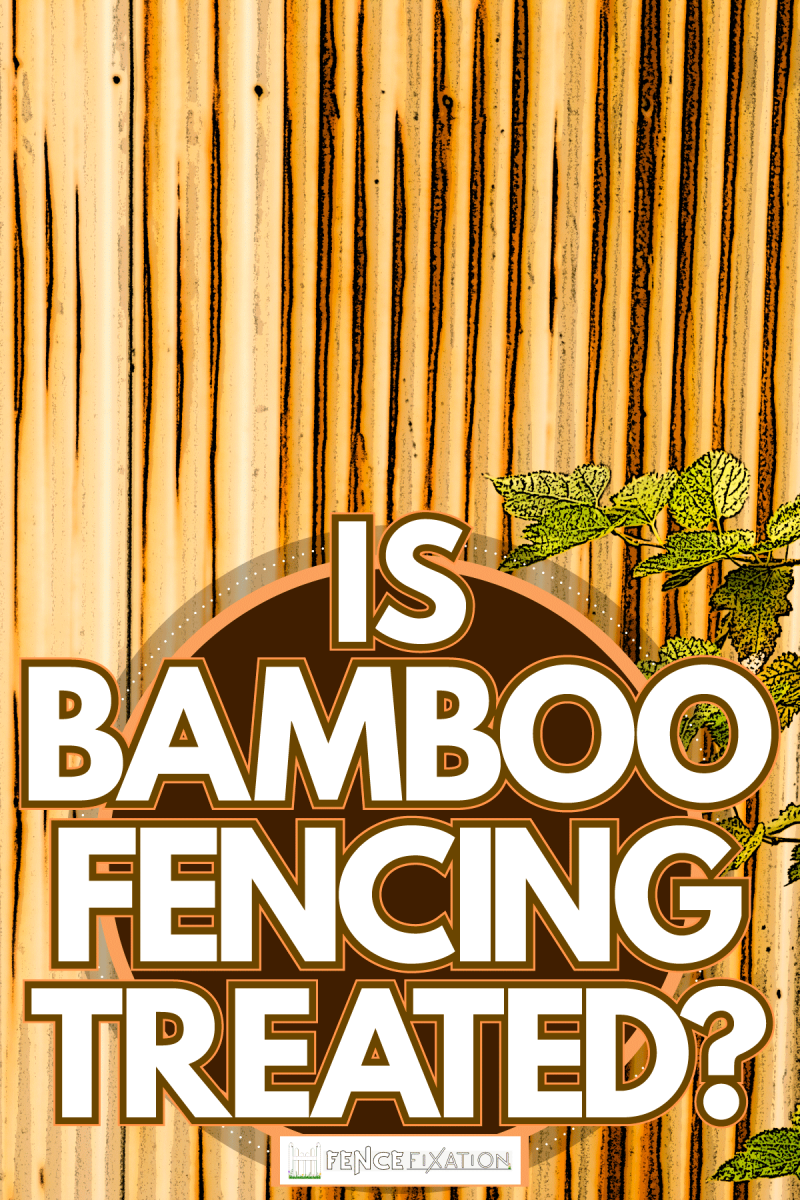
Does Bamboo Make A Good Fence?
Bamboo isn't far behind cedar and redwood when it comes to fencing. Its natural, exotic appeal makes it a great choice for outdoor use. Also, it’s flexible and strong. Lastly, it’s eco-friendly because it is the fastest-growing tree so bamboo fencing doesn’t contribute to deforestation.
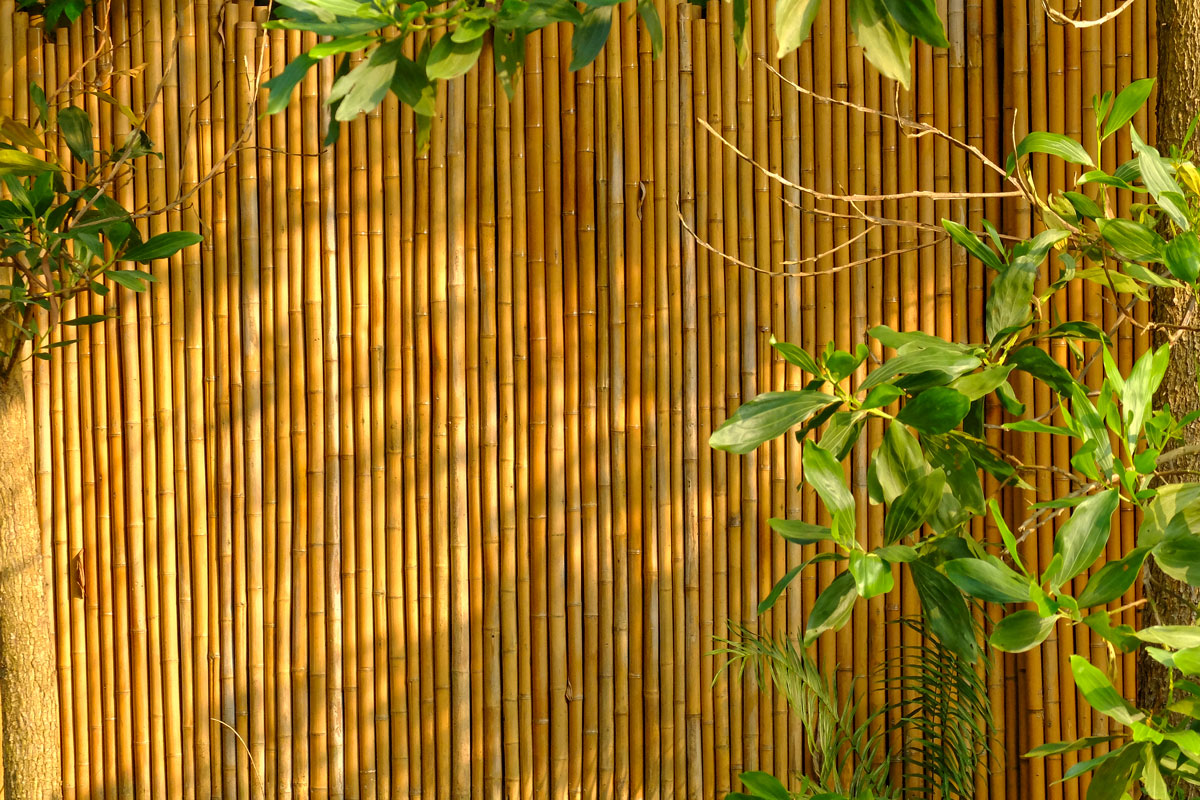
Why Bamboo Fencing Must Be Treated?
Bamboo might be tough and durable, but, as mentioned, it is not immune to various environmental factors such as pests, mold, and UV rays. Bamboo is not waterproof by default. Those are the reasons they have to be treated upon harvest.
Untreated bamboo will be susceptible to humidity and bug infestation and is less likely to last for more than 7 years.
How To Know If The Bamboo Fencing Has Been Treated?
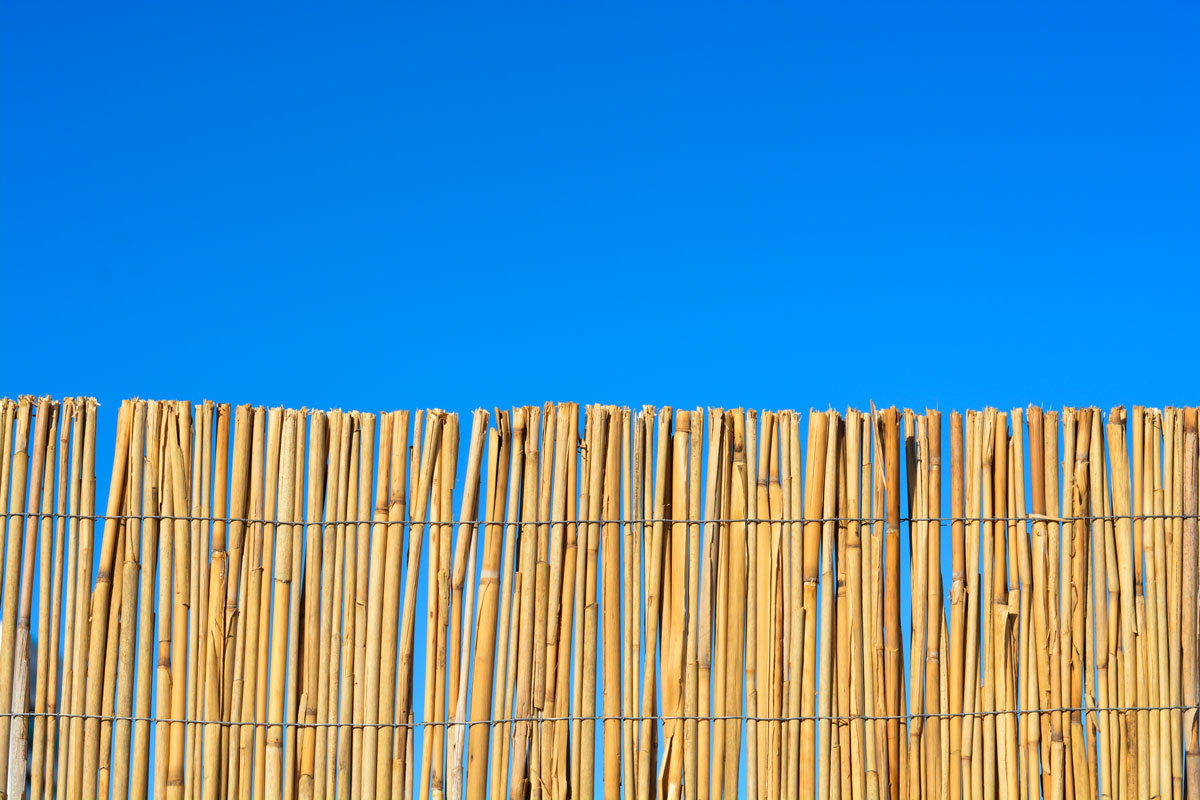
Treated bamboo has a natural tan color, but you can also check the stamp or label, like that of pressure-treated woods. To be sure, don't hesitate to ask the manufacturer/fencing contractor.
Methods To Treat Bamboo Fencing
There are several options for treating and curing fresh bamboo that includes:
Heat Treatment
This is by far the most effective method. Using heat releases the bamboo resin or natural oil to coat and seal bamboo.
Some people use a blow torch, but it’s best done with a fire pit. Hold the bamboo over the flame until it gives off the resin, then pull it away (avoid holding the bamboo on the fire longer as you will end up with brown spots.) Rub the oil against the pole with a rag. Its own resin will protect it against the primary causes of deterioration.
Wear protective gloves and prepare a fire extinguisher in case of a fire accident.
Saltwater Treatment
This method is the most common in Asia. The locals soak bamboo in salt water and sun dry it for two to three months to remove the starch and carbohydrate content of bamboo, making it unappealing to insects.
You can do vice versa—dry the bamboo first, then soak it in salt water for the same amount of time. Though not the fastest method, it’s highly effective as it can seal bamboo for decades.
Drilling Holes
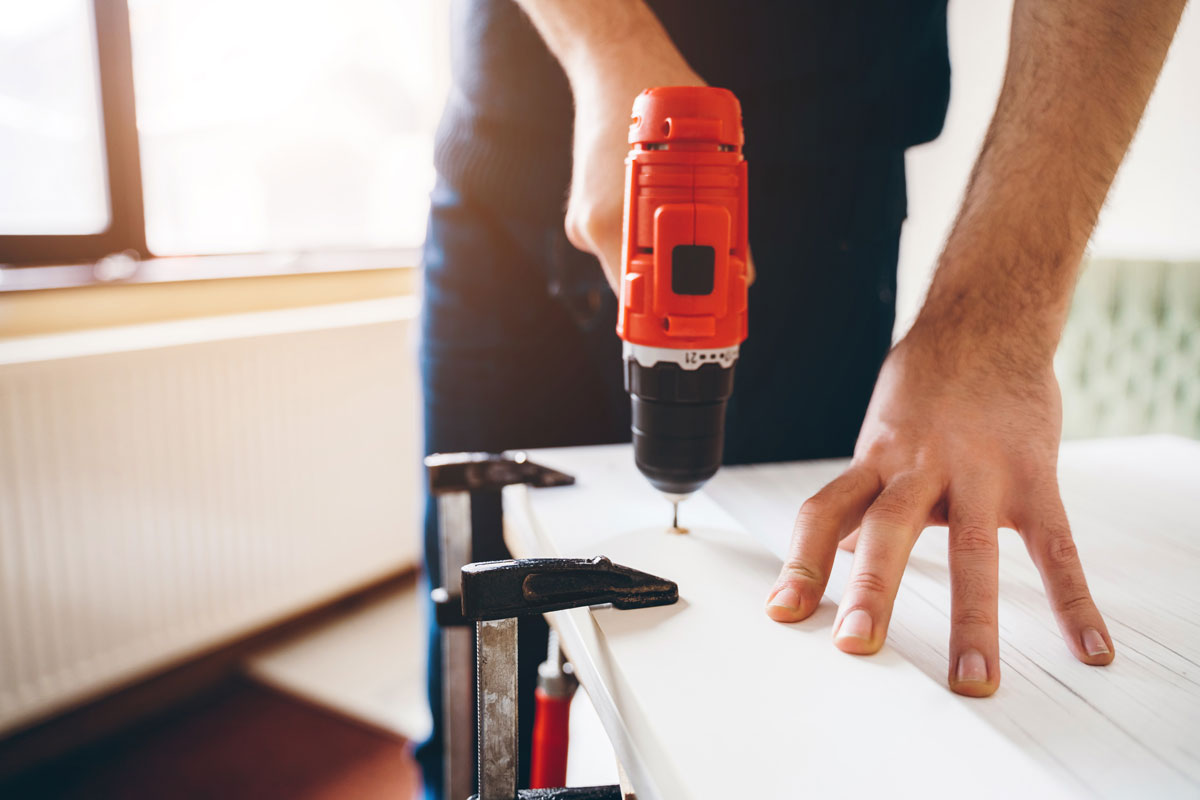
To minimize the chances of bamboo cracking upon exposure to heat, people drill holes to release air build up inside. Don’t worry about the holes reducing the bamboo's structural strength; they have little to no impact on it.
Borax Treatment
Borax can seal bamboo at a cellular level and serves as an insecticide, providing an optimal solution to moisture (a common problem since bamboo is built close together) and termites Also, it’s non-toxic, thus, posing no health and environmental risks. Further, it’s simple to do!
You can buy 1:1.5 pre-mixed borax and boric acid (disodium octaborate tetrahydrate). Just mix and dissolve it in water, then you can either spray it on the bamboo or submerge the pole in the mixture.
Check out this product on Amazon.
Heavy Chemical Treatment
Chemicals with heavy metal content such as zinc chrome, copper chrome arsenic, and copper chrome acetic are particularly useful in reinforcing poles in contact with the ground and can provide up to 50 years of protection. However, they can be health hazards, so they are recommended for outdoor use only.
Sealing
Sealing adds another covering that repels rain and moisture. There’s a variety of sealants available, but Total Wood Protectant (TWP) makes a great choice for bamboo fencing. It makes it waterproof while retaining its natural color. Here’s how to seal a bamboo fence.
Can You Stain A Treated Bamboo Fence?

Yes, you can, if you want to change the natural color of bamboo. Staining colors the surface of the bamboo with a mahogany tone without altering the original grain. At the same time, they penetrate deep into the pores, blocking water and dirt.
Check out this product on Amazon.
Can You Paint A Treated Bamboo Fence?
Yes; in fact, most manufacturers paint bamboo fences white. But you can choose other tones, depending on your liking. Any type of paint such as chalk paint, latex paint, mineral paint, or high-gloss lacquer paint will work. You may also spray paint to make the task easier.
Check out this product on Amazon.
Is It Better To Stain Or Paint A Fence?
Staining is better than painting as it penetrates deeper into the bamboo or wood. You only need to reapply every three to five years. Paint needs a touch up every two to three years. It also doesn’t flake or chip, so there’s less bamboo preparation. However, it’s much more expensive.
Painting makes a good choice for covering imperfections and changing bamboo colors.
Ways To Maintain Bamboo Fencing
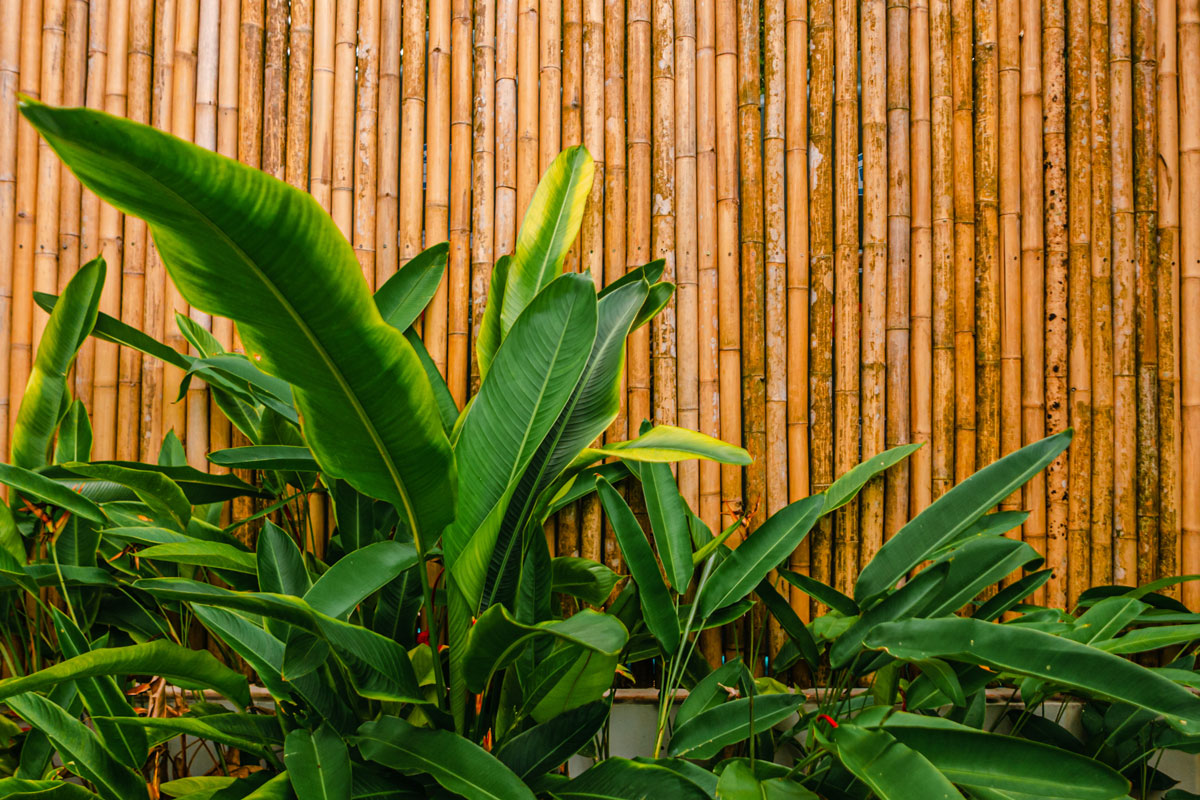
Like any other fence, bamboo needs maintenance too. Here’s how:
Regular Cleaning
The first rule of thumb is regular cleaning. Piled-up leaves and dirt can cause the bamboo to rot early. Cleaning inhibits decay and also gives your fence a fresh new look!
You can spray it with a cleaning agent of your choice, then allow it to soak for 10 to 15 minutes. Rinse thoroughly. That’s it!
Resealing
Resealing preserves the appearance of the bamboo and keeps it in great shape for many years. Experts recommend resealing bamboo fencing every two to three years or as needed, depending on the weather condition in your area.
Keep The Posts Straight
You want to make sure that the posts are firm and straight, otherwise; the bamboo would warp and lean. Inspect the fencing from time to time to see if the posts are secure and level (post spikes can solve related issues.) Do necessary repairs as soon as possible.
How Long Does Bamboo Fencing Last?
Untreated bamboo fencing will only last up to 7 years. But the treated and well-maintained one can last for 15 to 20 years! So make sure to have your fence treated and not skip regular maintenance.
Conclusion
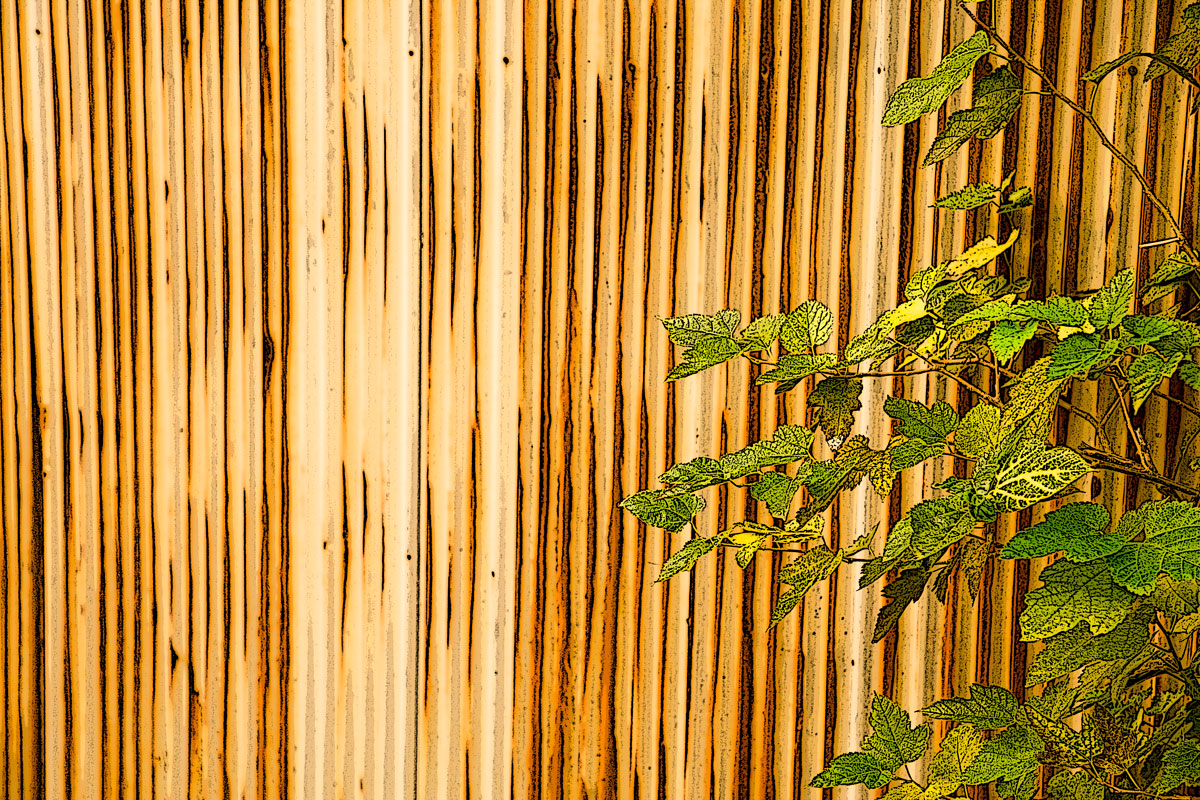
Bamboo fencing and bamboo intended for other outdoor uses including patios and decks must be treated to protect them from damage. This is because bamboo has no natural resistance to pests, mold, and other harsh environmental factors. Treating them can extend their life expectancy.
If you liked this post, you might also like:
Best Wood For Split Rail Fences [4 Great Options!]
5 Types Of Fence Post Caps [How To Choose For Your Type Fence]




![A grass meadow and a small fence next to a small pond, How Long Does Split Rail Fence Last? [And How To Prolong Its Life]](https://fencefixation.com/wp-content/uploads/2022/06/A-grass-meadow-and-a-small-fence-next-to-a-small-pond-600x400.jpg)
![White rail fence leading along cornfield and deep blue sky. How Tall Are Split Rail Fences [Inclding 2, 3, & 4 Rail Heights]](https://fencefixation.com/wp-content/uploads/2022/06/White-rail-fence-leading-along-cornfield-and-deep-blue-sky.-How-Tall-Are-Split-Rail-Fences-Inclding-2-3-4-Rail-Heights-600x400.png)
